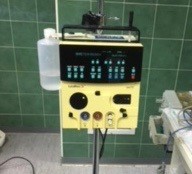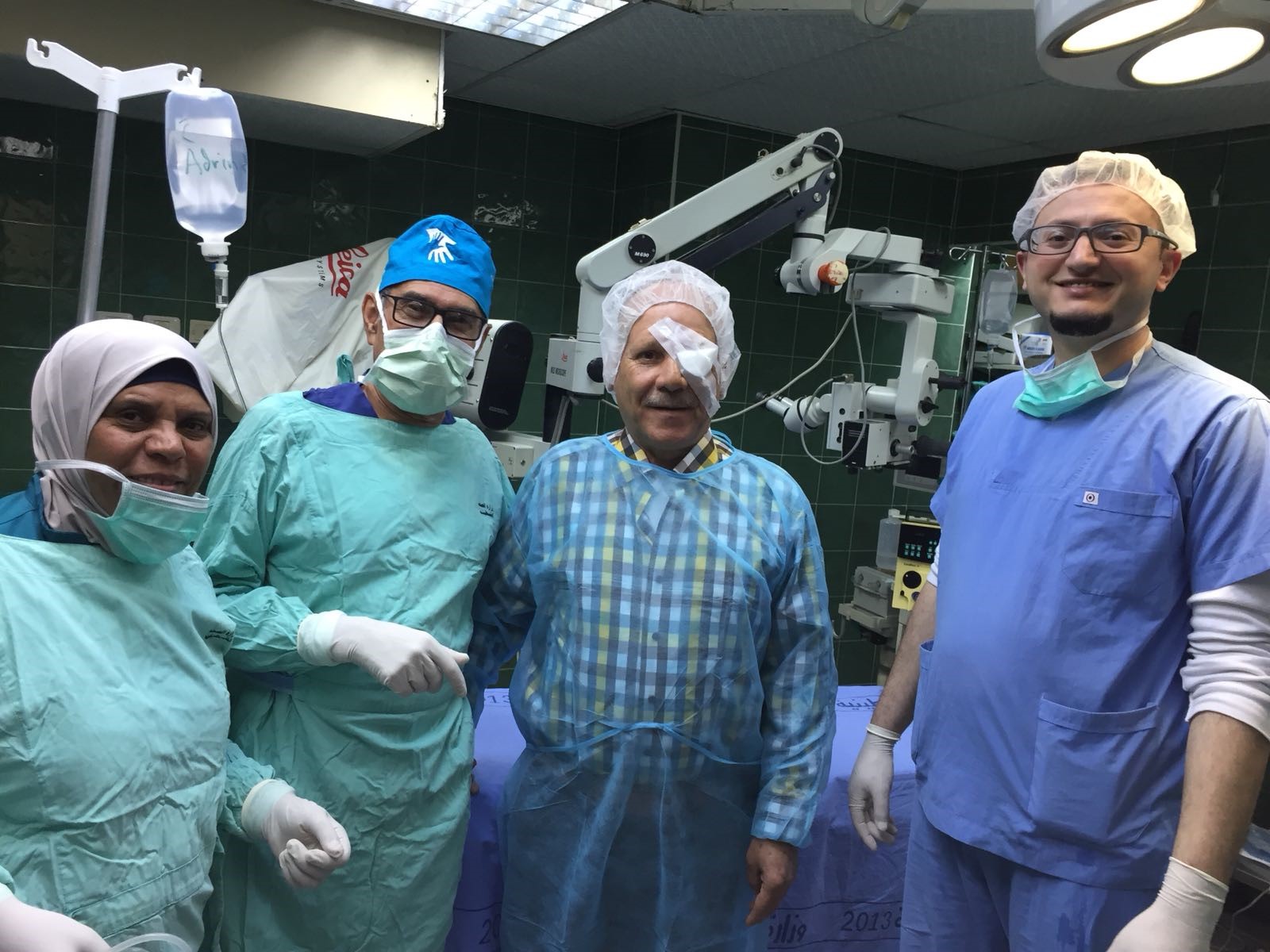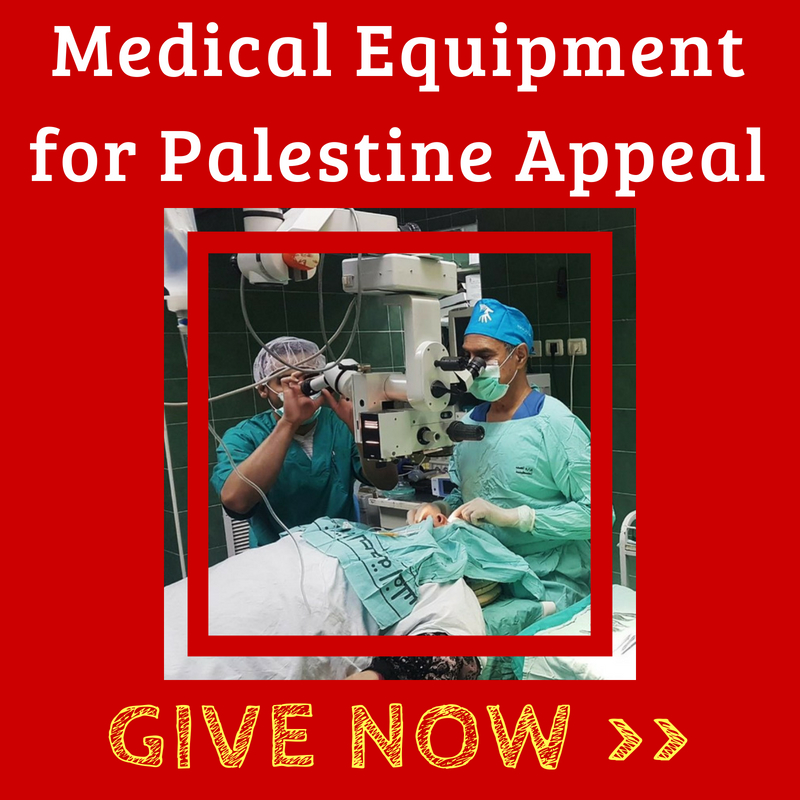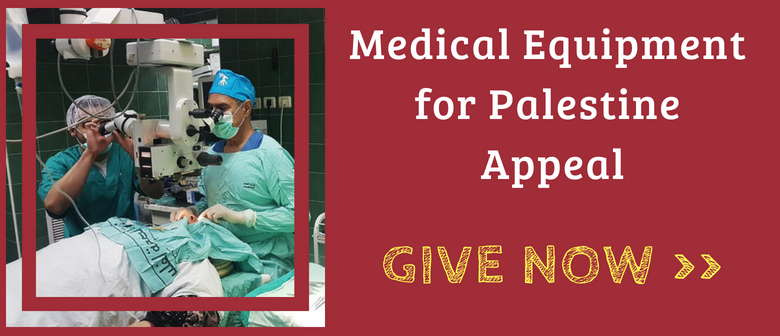Of phaco machines and teddy bears in Palestine
AFOPA members Dr Francis Nathan (Ophthalmologist) and Merlin Nathan (Occupational Therapist) report back on their recent visit to Palestine, 24-29 March 2018, with the Palestine Children's Relief Fund (PCRF).
~~~~~~~~~~
Dr Francis Nathan, Opthalmologist
Rafidia Hospital, Nablus (West Bank)
This mission was particularly significant as we were able to do cataract surgery with a brand new “phaco” machine that was purchased and donated to Rafidia Hospital, Nablus by the Palestine Children’s Relief Fund (PCRF).
Cataract refers to the clouding of the natural lens in the human eye and is the most common cause of treatable blindness. The cloudy lens or cataract is removed and replaced with an artificial plastic lens.
The cataract is removed either through a large wound (8-10 mm) extracting the lens as one piece…or broken up into small pieces and softened (emulsified) and removed through a small wound (2-3 mm) with suction.
The smaller wound assists in quicker healing and visual rehabilitation and also reduces the chances of infection.
The phaco machine donated by PCRF.
Phaco-emulsification is the currently favoured method of surgery to remove cataracts around the world. However it requires an expensive piece of equipment - a “phaco” machine - plus other accessories and a different set of instruments. It also requires the surgeons to be trained with special skills to use the machine.
The main obstacles to getting the machine are the cost of the machine and appropriate training required by surgical and support staff to use the machine.
This machine was donated in late 2017 and has already been used by Dr Hamdi Nabulsi, an experienced eye surgeon (and also the Director of Medical Services with the Ministry of Health) and by Dr Husam, an eye surgeon at Rafidia Hospital, with success.
It was with some trepidation that I approached the use of the machine, as I was not familiar with the machine having used other models back in Australia.
However with the help of Dr Husam and the nursing staff we were able to do 7 cases with the machine, out of a total of 48 patients with cataracts.
The small number of patients that benefitted from Phaco surgery was due to:
Only one phaco probe (which is used inside the eye to remove the cataract) was available and this had to be specially sterilised - a process taking two hours each time. So obviously we need to purchase at least 2 more phaco probes.
Unfortunately not all cataracts can be removed with phaco-emulsification with the procedure only recommended for early “soft" cataracts. Most of the cataracts we encountered were advanced “hard” cataracts. So suitable cases have to be chosen carefully.
It is important for the nursing staff to be properly trained as some of them were assisting with phaco surgery and using the machine for the first time.
First patient operated on with the new PCRF phaco machine.
I want to profoundly thank Steve Sosebee, the CEO of PCRF and Dr Khaled Abughazaleh, the Chairperson of the Medical Board of PCRF and the entire PCRF Board for their support in procuring the machine.
It will enhance the quality of eye surgery for all Palestinians in the public sector, as Rafidia Hospital is the main centre providing free or subsidised eye services for all of the West Bank.
It will also attract more eye surgeons to volunteer with PCRF as most of the currently trained eye surgeons are more proficient and comfortable with phaco surgery than the other technique.
I also want to thank AFOPA (the Australian Friends of Palestine Association) and the Selva Foundation for their ongoing financial support with the airfares again. I hope to enlist their help for donations towards purchasing the extra probes.
Thanks also to Dr Anan who prepared all the patients and the nursing staff, Ayesha and Wafa who worked long hours to complete the surgery in five days.
I hope to do an extra trip this year to help with training and making the best use of the new equipment.
Dr Francis Nathan
Ophthalmic Advisor, PCRF
> Read PCRF article on Francis's working visit to Palestine.
Merlin Nathan, Occupational Therapist
My only impediment on this trip was, these poor teddy bears! [See photos below] Vacuum-packing twenty-seven of these beautiful, colourful, hand-knitted teddies by a patient of ours, Chris Pinnington, and donated to our Palestinian children. The appreciation expressed by the parents and the surprises on the kids’ faces were a delight to observe.
With these teddies were included a card, stickers and a WOMAD message* translated into Arabic by AFOPA member, Omaya Elassaad. This gift and message expressed the warm feelings and continued support of Australians and WOMAD's overseas visitors for the Palestinian people.
I have to share this too. From the simplest greeting to the grandiose farewell we had on the last day - a variety of bed deco on a daily basis by the lovely staff of our hotel in Nablus, Palestine.
A number of posters were created from WOMAD messages too, framed there and presented to the heads of PCRF offices in the West Bank. This time, with Omaya’s help I was able to provide a short background of its significance in Arabic. These messages of hope and support were well received.
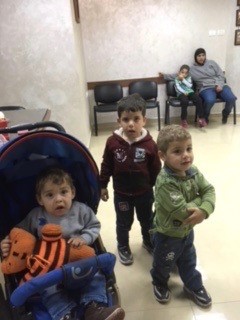
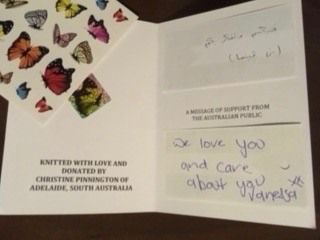
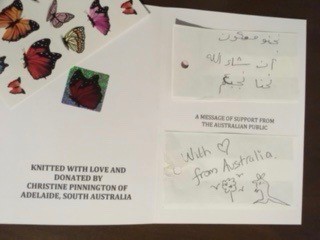
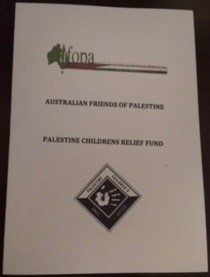
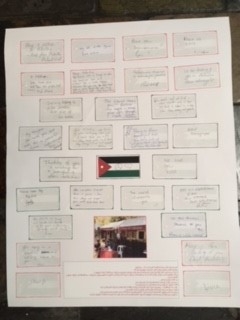
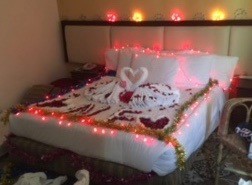
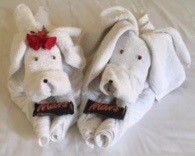
* Editor's note: The AFOPA stall at this year's WOMADelaide festival in Adelaide asked visitors to write a brief message of hope to Palestine and attach it to an olive tree. These messages are then collected and delivered to Palestine with Francis & Merlin Nathan on their regular visits.
View blog by TAG
- 1948 1
- 1967 War 9
- 29 November 1
- 3 goals 1
- 3D printing 1
- 5 ways 1
- 60 dead children 1
- 70 years 1
- AFOPA 1
- AFOPA Media Report 45
- AFOPA statement 1
- ALP 4
- APAN 3
- Abbas 1
- Absentee Property Law 1
- Adalah 2
- Adelaide 8
- Ahed Tamimi 3
- Airbnb 1
- Al-Aqsa Mosque 3
- Alabnese 1
- Albanese 1
- Amazon 1
- Amnesty International 2
- Annexation 10
- Anti-Palestinianism 1
- Antisemitism 1
- Apartheid 3
- Arab academics 1
- Attacks 1
- Australia 6
- Australian Government 2
- BDS 62
- BDS Campaign 1
- Balfour Declaration 2
- Bassem Tamimi 2
- Bedouin 2
- Beersheba 4
- Beirut 1
- Benjamin Netanyahu 15
- Berlin4Palestine 1
- Bernard Regan 1
- Bethlehem 4
- Biden 1
- Birzeir University 2
- Breaking the Silence 1
- Britain 2
- COSATU 1
- COVID-!( 1
- Canada 2

